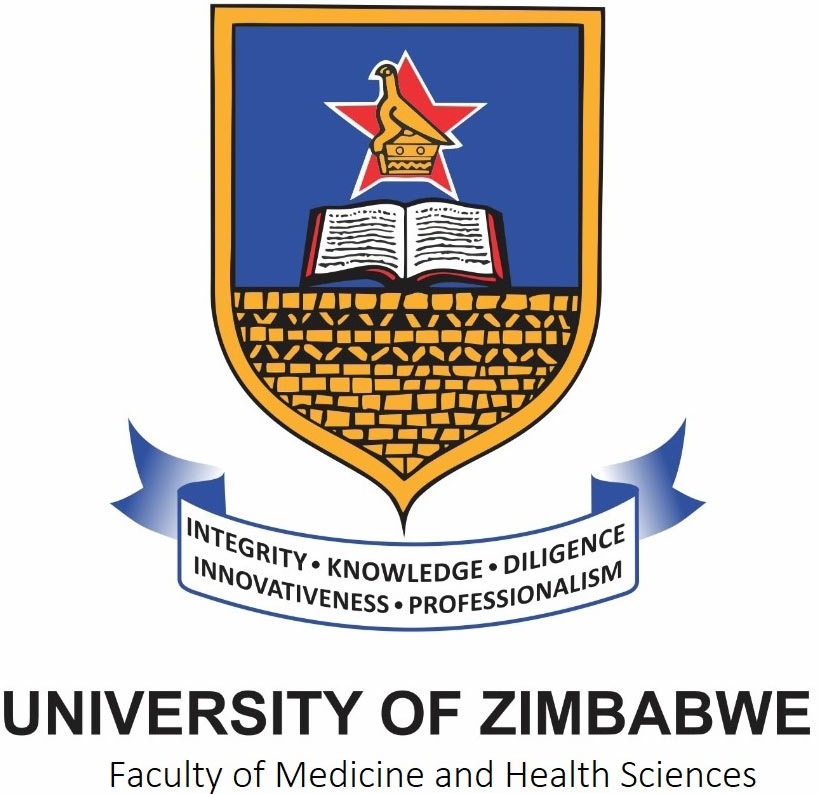Reported by Clemence Manyukwe 31 August 2023.
While still in high school, Zimbabwean Dr Pamela Mukwekwerere wrote in a motivation letter for selection to the country’s junior parliament that she wanted to be part of the team that would eventually discover a cure for HIV/AIDS.
Years later, she is a medical officer at the University of Zimbabwe Clinical Trials Research Centre in Harare.
Her work and that of her colleagues at the university demonstrates how scientific endeavours carried out by institutions of higher learning can have a positive impact on society through life-saving interventions in the treatment of diseases, the care of patients and the shifting of public policy.
“As destiny would have it, I have 10 years in the field of HIV/AIDS research – in the centre of cutting-edge clinical trials that are making a huge impact on HIV prevention, treatment and the ongoing search for a cure,” Mukwekwerere told University World News.

Dr Pamela Mukwekwerere
Numbers are dropping
In Zimbabwe, the prevalence of HIV infection (the number of existing cases) stands at 11.9% while the incidence (the number of new cases) is at 0.27%.
National Aids Council data shows that between 2016 and 2020 the number of new HIV infections fell from 40,900 to 24,900, while that of people living with HIV dropped slightly from 1,278,800 to 1,277,600.
Zimbabwe, Botswana, Eswatini, Rwanda and the United Republic of Tanzania have reached the 95-95-95 target, which means 95% of people living with HIV know their status, 95% of these receive antiretroviral therapy (ART), and 95% of this group has achieved viral load suppression.
During the same period, the number of people dying of AIDS fell from 25,700 to 22,200.
It is on these figures that Mukwekwerere has been making an imprint since she graduated from the University of Zimbabwe college of health sciences with an MBChB degree in 2008. She obtained a masters degree in public health from the University of Roehampton in the UK in 2020.
At the moment, Mukwekwerere is working on a study aimed at improving adherence to antiretroviral therapy (ART) in young people with hazardous alcohol and substance use. Mukwekwerere said the study was conceived after noticing challenges experienced by young people struggling with alcohol and substance use and how that can negatively impact those who are on ART.
“We are using a behavioural intervention that we have adapted for use in Zimbabwe and now we are at the piloting stage of that intervention in three of our local city council clinics,” she said.
Centre has made major strides
Dr Lynda Stranix-Chibanda, the scientific director at the University of Zimbabwe Clinical Trials Research Centre, told University World News that from 1994, at the height of the HIV/AIDS pandemic, researchers from the University of Zimbabwe faculty of medicine and health sciences embarked on a research programme in response to the crisis.
Almost 30 years later, the research centre has grown to generate scientific data for the country’s ministry of health and child care through evidence-based research in cervical cancer screening, HIV prevention and treatment, TB, as well as infectious diseases of major public health impact like COVID-19.
The World Health Organization has recognised some of the ground-breaking work that emanated from the university’s centre, such as recent studies that led to the Medicines Control Authority of Zimbabwe registering the long-acting injectable cabotegravir for HIV prevention. Five of the 20 sites in the study were in Zimbabwe.
Stranix-Chibanda said clinical trials the university conducts establish the dosage, safety profile, and effectiveness of new medicines and devices in people of all ages.
“The Medicines Control Authority of Zimbabwe (MCAZ) uses data from clinical trials to register products for use in our country. For example, the research centre worked out the dose of nevirapine needed to prevent HIV transmission to infants during breastfeeding, which was then incorporated into global guidelines and our own national guidelines for EMTCT (elimination of mother-to-child transmission),” Stranix-Chibanda said.
“More recent studies led to MCAZ registering the long-acting injectable cabotegravir and dapivirine vaginal ring for use as pre-exposure prophylaxis (PrEP) to give users a choice of PrEP options. We also completed the first HIV vaccine trials in Zimbabwe, although that product did not give enough protection against HIV infection to be licensed,” she said.

Dr Lynda Stranix-Chibanda
Ground-breaking work on ART
The University of Zimbabwe also participated in a multi-country study that showed it was better for people living with HIV to start ART right away instead of waiting for their CD4 count to fall below a certain threshold, which shows their immune systems were beginning to struggle. “That trial revolutionised thinking about when to start ART globally, and changed clinical practice guidelines in Zimbabwe,” she said.
Stranix-Chibanda said the success of their university’s work can be attributed to the research environment in Zimbabwe as well as continuous investment in highly specialised infrastructure and training.
“Through the MCAZ, Zimbabwe was the first country globally to register the dapivirine vaginal ring and the first in Africa to register cabotegravir as safe and effective additional prevention choices for women at substantial risk of HIV infection. These two interventions are modelled to avert thousands of new HIV infections in Sub-Saharan Africa by 2030,” she said.
She said the university was also part of a global team that conducted the flagship study which showed that early ART and viral suppression lead to ‘U+U’, or ‘undetectable equals untransmissible’.
Challenges involved with clinical trials
A lack of resources is a challenge as clinical trials consume a lot of time, supplies, and funding, Stranix-Chibanda said. However, this is central to a successful outcome because of the high level of clinical quality management needed to produce valid results.
Africa accounts for 17% of the global population and bears 25% of the global burden of disease. Yet less than 3% of global clinical trials take place on the African continent, according to an article published in the journal BMC Public Health in 2020.
Stranix-Chibanda said that this challenge needs to be addressed: “It is essential for Africa to prioritise research and promote an African-led research agenda developed by African scientists and community partners. Investing in early career investigators is one way to accomplish that, building a critical mass of researchers with the support they need to carry through a concept from start to finish.”
Academics institutions are key
Professor Charles Maponga, director of the school of pharmacy at the University of Zimbabwe’s college of health sciences, said most clinical trials are championed by universities as institutions of higher learning have the highest concentration of qualified researchers. In fact, research is one of the key pillars of academic practice.
Maponga is the director for the International Pharmacotherapy Education and Research, and co-director of the UB-UZ HIV International Training and Research programme, a joint venture of the University of Zimbabwe and the University at Buffalo in New York State, where he holds a visiting faculty position in the school of pharmacy.
“Merits are that academic institutions combine qualified researchers in a wide variety of disciplines: natural scientists, biomedical scientists, and social scientists, who normally collaborate to advance research. This is also where the latest technology required to conduct research can be found. Academic researchers are also considered less biased,” he said.
“The demerits are that depending on how the research is sponsored, there might be a need to deal with issues of how intellectual property is shared.”

Professor Charles Maponga,


No comments yet.